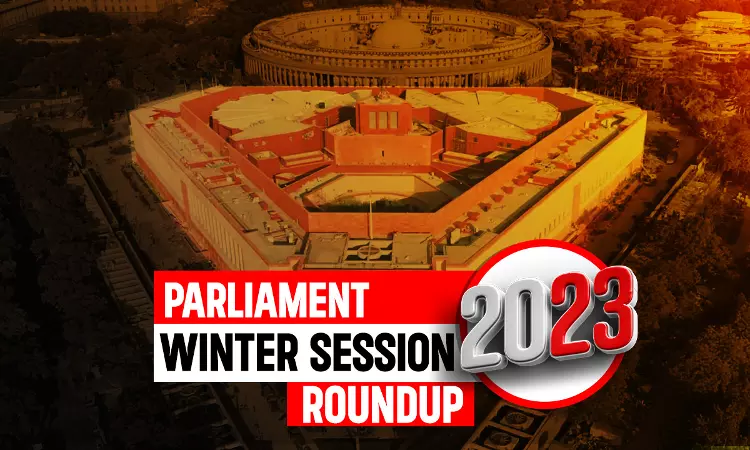- Home
- /
- Top Stories
- /
- Parliament Winter Session 2023...
Parliament Winter Session 2023 Roundup
Awstika Das
26 Dec 2023 5:54 PM IST
In a flurry of legislative activity, the Winter Session of Parliament, which convened on December 4 and concluded on December 21, saw the passage of several significant bills that will have far-reaching implications for the legal and regulatory landscape of the country. Here is a comprehensive recap of the key bills that received the nod from either the Lok Sabha, the Rajya Sabha, or both...
Next Story



